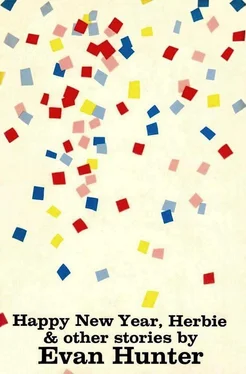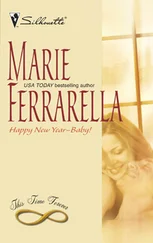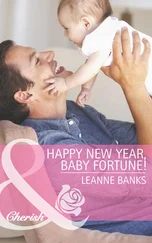“No, I don’t want a ring,” Diane said briskly, pulling back her hand. “We’d better go, Michael. Our driver is waiting.”
Barker smiled palely. “In Jamaica, madam,” he said, “all things can wait.”
“Rings included,” Diane said coldly. “Let’s go, Michael.”
Barker stepped into their path unobtrusively, almost gliding over the dusty floor, so that his interference did not seem at all like a deliberate one, his eyes never leaving Diane.
“I have some beautiful things to show,” he said. “Wait.”
“I think...” Michael started.
“Wait,” Barker said.
He went behind the counter. Michael glanced at Diane and gave a slight shrug of his shoulders. Her eyes met his coldly, more meaning in them than he could read. He frowned. Behind the counter, Barker wheezingly knelt and then came into view again, his ash-dust face appearing above the countertop, his eyes flicking again to Diane. It seemed hotter in the shop now. Barker’s shirt stuck to his flaccid body, giant blots of perspiration spreading from his armpits across his chest.
“Here,” he said. “Look at this, sir.”
He opened the case in his hands. A dueling pistol rested on black velvet, a handsomely wrought gun with silver filigree decorating the handle and twined around the barrel.
“That is a very old gun, sir,” Barker said. “Look at it, sir. It is beautiful, is it not, sir?”
“Yes, it is,” Michael said honestly, leaning closer to the pistol.
“You may hold it, sir, if you like,” Barker said. He handed the pistol in its case to Michael and then turned again to Diane. “That is an interesting watch you’re wearing, madam,” he said, and he glanced at the gold watch that hung from a chain about her throat, a small gold circle resting against the white pillow of her blouse.
“May I?” he asked, and before she could answer he reached for the watch, his thick fingers swooping toward it as gracefully and relentlessly as the vultures they had seen in Port Antonio yesterday dropping swiftly out of the sky. Delicately, his fingers plucked the watch from where it rested on her blouse. He did not touch her and yet the careful, exaggerated delicacy of his fingers as they plucked the watch from its nesting place was somehow a violation. Somehow the lack of physical contact implied a greater, more intimate, contact. He held the watch on his thick palm and glanced at Michael who was examining the silver-filigreed pistol.
“This is an old watch, madam?” he asked Diane.
“No. It’s new.”
“Oh, but not so new, madam.”
“I bought it a year ago.”
“It has the appearance of an old watch, madam.”
“It’s not.”
“That is a shame, madam,” Barker said. “For the old things have greater value.”
“Only to collectors of antiques,” Diane said frostily, and Michael looked up from the pistol in his hands, startled by the unusual sound of his wife’s voice.
“How much is this worth?” he asked Barker.
Gently Barker allowed the pendant watch to return to its resting place. He turned wheezily to Michael, sighed, and said, “The pistol costs two hundred pounds, sir.”
“It’s beautiful,” Michael said.
A thin smile crossed Barker’s face. “But more than you care to spend, sir?”
“Oh, I wasn’t considering buying it,” Michael answered. “I was just curious.” He wiped his lip again, and handed the pistol case back to Barker. “Come on, Diane. We’d better go.”
“Wait,” Barker said, and he held up a finger and looked again at Diane, and this time Michael saw the quick motion of his eyes and thought, Why, the old man is flirting with my wife! The thought was somewhat amusing and also somewhat irritating, a curious mixture that somehow strengthened Michael’s desire to leave the shop at once.
“We really must go,” he said.
“Just one moment, sir,” Barker said. “I have something else to show you.”
Michael turned to Diane. She rested against the dusty counter leaning on one elbow, the pendant watch hanging, a negative silhouette in gleaming white, a graceful curving silhouette from the tilt of her blond head to the long lissome length of her legs in the tight tapered slacks. An odd smile was on her mouth, a smile Michael had never seen there before. She did not move from the counter. She kept staring at the old man as he went to one of the ancient cases and pulled open a heavy drawer and then moved toward them with a large carved wooden chest in his hands.
“Let’s go, Diane,” Michael said. She seemed not to hear him. “Diane,” he said. “Let’s go.”
“No,” she answered. “Let’s see this.”
Their eyes met for an instant, and he thought frozenly, She’s enjoying the old man’s attention , but he knew this was ridiculous — and yet there was the smile on his wife’s face. He wiped again at his lip with his handkerchief. In the street outside, he could hear the rushed babble of native speech and honking horns and sandaled feet beating the scorched pavement. Barker approached, and the ticking of all the clocks in the shop suddenly registered on Michael’s ears, a sound that had surely been there all along but which he heard only now, the ticking of hundreds of clocks, and yet a ticking that was timeless, a ticking that was somehow not at all connected with the passage of time but that seemed instead to nullify it and render it meaningless.
“Let’s go,” he said sharply, but Barker was standing in their path again, his obese body wedged into the small entrance area between the counters. He held out the wooden chest, smiled wanly at Diane, and said, “Would madam care to open it?”
“Thank you,” Diane said, and this time there was an unmistakable lilt to her voice, and she arched one eyebrow coquettishly. She smiled at the old man, a lazy, mysterious smile, and then she slowly lifted the lid of the chest.
The beam of sunlight from the open window caught the contents of the box, magnified the hundreds of thick gold coins which were heaped inside. The sight of the coins was startling to Michael. He had held no preconceived notion of what the chest contained and now that it was opened, splashed with sunlight, each coin glittering with a thick circular life of its own, he caught his breath in wonder and surprise and unconsciously moved closer to the heavy chest as Barker set it down on the countertop.
“Doubloons,” Barker said. “Spanish doubloons. They are worth a fortune, sir.” His eyes met Diane’s over the open chest. There was a fine sheen of sweat on Diane’s forehead and her upper lip. The old man’s mouth was twitching slightly. His hand on the open lid of the chest had begun to tremble.
“Would you like to examine one, sir?” he asked, but he did not deliver the words to Michael. He spoke to Diane, and his eyes held hers in a steady gaze now, and she smiled back at him in a frozen, sleepy-eyed way, her eyes meeting the old man’s over the open box like a challenge. Michael picked up one of the coins. It was heavy and thick, inscribed with Spanish lettering and the name of a monarch and a seventeenth-century date. The chest was full of them. He wanted suddenly to pick them up and let them trickle through his open fingers.
“Would you like that coin, sir?” Barker said. There was a tremor in the old man’s voice now.
“It’s very beautiful,” Michael whispered.
“It is very very beautiful, sir. Would you like it, sir?”
“How... how much is it?”
“There is a price, sir.”
“What’s the price?”
“What do you think the coin is worth, sir?”
“I have no idea.”
“It is worth a great deal, sir.”
“Well, how much?”
“Make me an offer, sir.”
“I told you,” Michael said, annoyed, “I don’t know how much it’s worth.” He had become irritated suddenly and irrationally, irritated by the old man’s trembling hand and by the frozen smile on Diane’s face, and by the dust and suffocating heat of the shop, and the rush of noise outside, and irritated too by the sight of the gleaming coins in the old wooden chest.
Читать дальше












